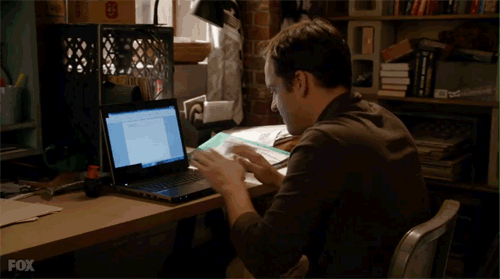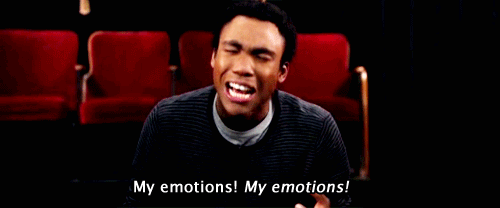"Write a short story every week. It's not possible to write 52 bad short stories in a row."
– Ray Bradbury
"A short story must have a single mood and every sentence must build towards it."
– Edgar Allan Poe
"The great thing about a short story is that it doesn't have to trawl through someone's whole life; it can come in glancingly from the side."
– Emma Donoghue
See more lovely quotes about short stories at Aerogramme Writers' Studio!
This week's flash fiction is a result of this song - White Doves, by Cider Sky:
and this prompt:
*
Monster Memory
It takes a monster to kill a monster.
But no matter how many monsters she fought, there was one
she could never slay. The one that grew stronger inside her the more kills she
racked up. Monsters came in various forms, but there was none quite as scary as
the one that looked back at her in the mirror.
You mustn't grow a
conscience, was what they said when she decided to join the Creed. It's bad for business.
But she couldn't stop the third party – unwelcome or not –
from settling in her gut. It was an occupant that would turn the house inside
out and leave muddy footprints all over the floor, but even this beat the
emptiness that lived there before.
As she slipped through the desolate night into the target's
house, she wondered if she was right in taking on this assignment.
Stop thinking like
that, she chided herself. She had been a shivering, bloody mess reaching,
grasping for support when they first found her. And it was the killing – the
single-minded focus of ridding the world of evil, evil that she had had to
encounter – that nursed her back to health; it was the killing that made her
stronger than she had ever been before.
Why then was she shuffling her feet around this mark? Was it
the file of sketches she found in his study, the one that called to mind the quiet
melody of a piano filling a room, the low, gentle voice next to her ear, a
warm, dry hand that smoothed the hair off her face? Whatever it was that raked
up these fragmented sensations, it made her inch towards the room at the end of
the hallway with an uncertainty that was as bewildering – disorientating – as it was atypical.
Even monsters had memories. What did it say about her that
she recalled nothing of her life before she joined the Creed?
She shook her head hard, shoving the thoughts back into the
store cupboard of her mind. Memories are
dangerous things, they said. They get
in the way of the job.
The doorknob was loose. It jiggled in her hand. She froze,
not because of her less than perfect entry, but because of the sudden draught.
All the windows were closed.
She had seen things, many things, terrible things, as a
result of this job. The violence she witnessed was what conditioned her hand,
froze her heart, and drew her further and further away from herself. But here
in this sparsely furnished room, where moonlight collected into a concentrated pool
on a mounted canvas in the corner, what greeted her wasn't a sight that made
her killing a gratuitous act.
There was no mark. No ugliness, no violence, nobody. Only the barren shell of a home
abandoned by its occupants, and the pure blank canvas on which the moon made
its art.
She stood in the middle of the room like a soldier stranded
without an order. Memories surged in to
fill the void, seizing her by waves, driving her to her knees. And there she
remained, splayed out. Played out.
When she saw him, a luminous spectre in the moonlight, she got
to her feet and whipped out the knife from her shoe in a practised move. But the
sight of him turned her to sand. Her knees barely supported her; even her voice
came out as a rasp, raw and scraped dry.
"You were dead." She couldn't remember his name. She wouldn't.
Even though everything was starting to come back to her. All
the times she had spent in his room, dreaming and laughing and loving, loving,
loving him. Until one day, there was no one left to love anymore. Her dreams
died along with him that day, and she had never dared to say goodbye or think
of him.
But here he stood now, right before her as though he had
never left. As though he weren't just a faint shadow of himself.
His eyes fell on the knife in her white-knuckled hand, then rose
to meet hers. "What happened to you, Aderyl?' His gaze was an unbearable thing,
heavier than the ravaged world.
The Creed had warned them of a test not too long ago, a test
that many before her had failed because they had let their guard down.
This is not real, she
told herself over and over. She squeezed her eyes shut and told herself that
over and over again. This is just a test.
She had given life to the monster in her, and this was where
it meant to devour her, in a house bursting full of tears and memories, a house
from another life.
"That’s not my name." Her voice cracked like a whip, renting
the tight air in a brazen move. Revenge was her name now. She had liked that,
how she was labelled and known by her purpose only.
"That’s who you’ll always be to me," he said. "Aderyl."
It wasn't a goodbye, this unexpected encounter, but she felt
it as keenly as the cold air brushing against her skin when he reached for her
hand. She gripped her knife tighter, afraid to let go of her weapon, of
herself.
It was only after the night claimed him that she allowed her
knife to clatter to the ground. Her mind, once wired for the kill, now tripped
over itself, and her limbs were clumsy, awkward things, unsuited for wielding
weaponry of any kind.
The Creed was right. Memories were dangerous; they were
monsters. Memories awakened every nerve and pulse, and left her vulnerable.
They became her.
They were her.
The Creed should never have set this test.
*




























